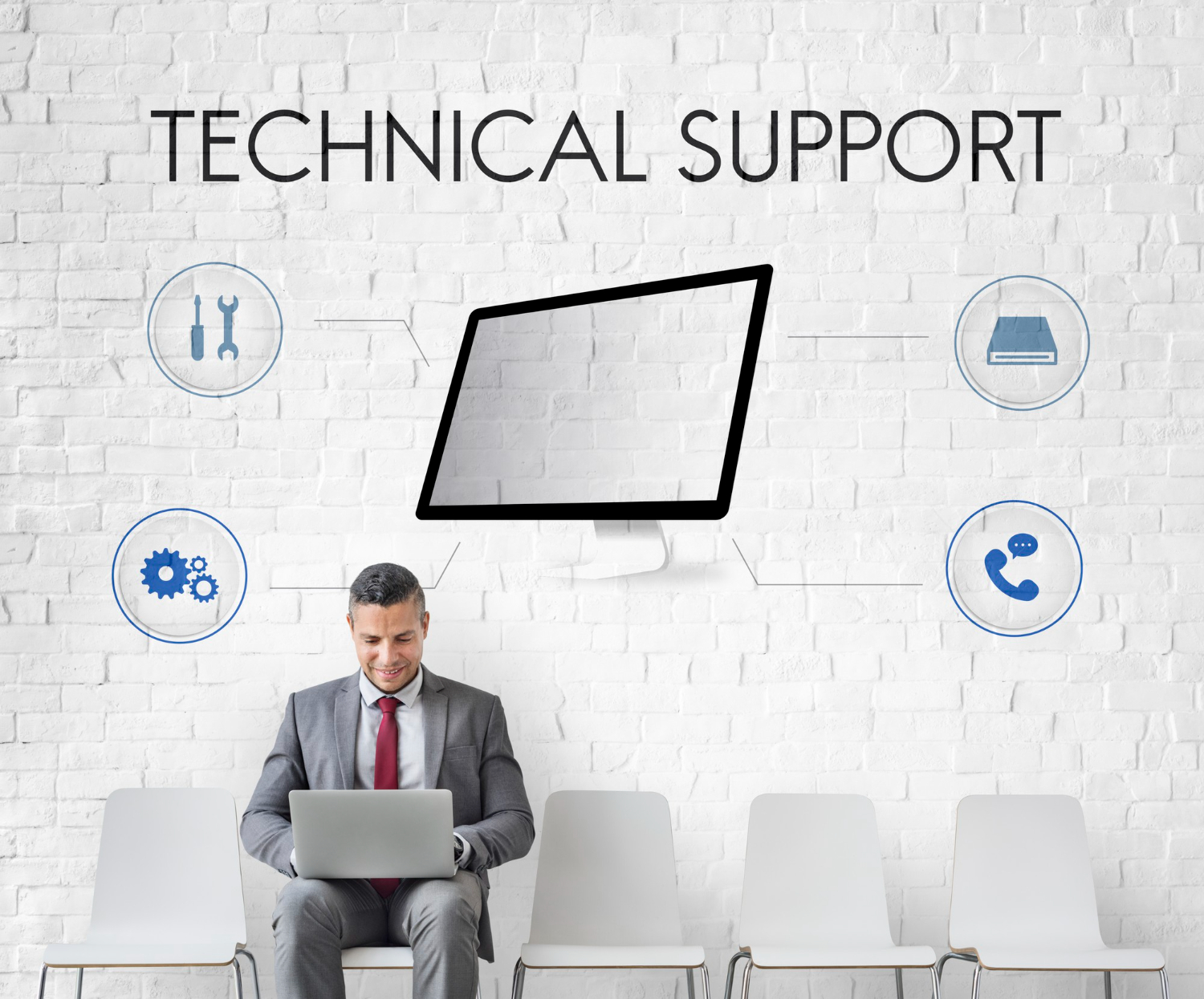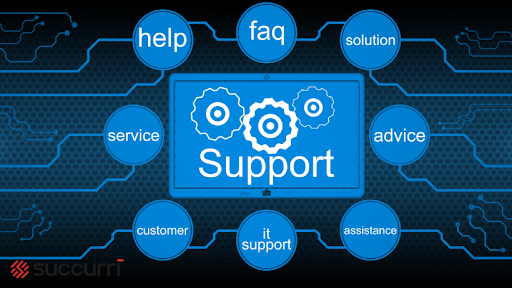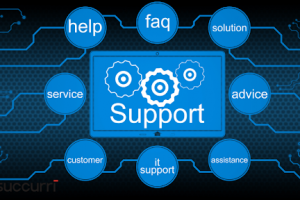Welcome to the world of IT support, where technology meets problem-solving, ensuring your digital landscape runs smoothly. In today’s fast-paced business environment, IT support is more than just a help desk; it’s a critical component that keeps your operations running seamlessly.
IT support is the backbone of modern businesses, whether it’s troubleshooting a software glitch, managing your network infrastructure, or protecting against cyber threats.
So why is IT support so important? In a nutshell, it boosts productivity and efficiency. With IT support, you can minimize downtime, resolve issues swiftly, and keep your team focused on what they do best.
IT support is not just about fixing technical problems; it’s about preventing them, optimizing systems, and ensuring everything works harmoniously. This guide will explore what IT support entails, its roles, and how it can transform your business operations.
Understanding IT Support
IT support is about keeping your technology running smoothly. It includes various services, from troubleshooting software issues to managing network infrastructures. IT support resolves tech problems and ensures everything operates efficiently.
But let’s clear up a common confusion: IT support differs from technical assistance. While technical support addresses hardware and software issues, IT support covers a broader spectrum, including system maintenance, security management, and strategic tech planning.
Types of IT Support
IT support comes in various forms to meet different business needs. Here’s a closer look at the main types:
Internal IT Support
Internal IT support involves an in-house team managing the company’s IT infrastructure. This support team handles network maintenance, software updates, and system security. The main advantages are direct control over IT operations, faster response times, and personalized service.
However, it comes with higher salaries, benefits, training costs, and the challenge of keeping up with rapid technological changes.
External IT Support
External IT support means outsourcing IT services to a third-party support provider. These providers offer remote support and on-site assistance, helping businesses manage their IT needs without an in-house team. The primary advantages are cost-effectiveness, access to diverse expertise, and scalability.
However, businesses might face slower response times and less personalized service since external providers may not be as familiar with the company’s requirements.
Managed IT Support
Managed IT support involves hiring a specialized company to manage all your IT needs, including proactive monitoring and maintenance. The benefits include predictable costs, enhanced security, and allowing businesses to focus on core activities.
This approach lets companies use the latest technology and best practices without heavily investing in an in-house IT team.
Common IT Support Services
IT support encompasses various services essential for maintaining and optimizing a company’s technology infrastructure. Here’s a look at some of the most common IT support services:
- Help Service Desk Support: Provides immediate assistance to users experiencing technical issues, ensuring minimal disruption to daily operations.
- Technical Support: Tech support focuses on diagnosing and resolving hardware and software problems, ensuring all systems function correctly.
- Network and Infrastructure Support: Manages and maintains the company’s network infrastructure, ensuring reliable connectivity and performance.
- Software Support: This position assists with the installation, maintenance, and troubleshooting of software applications, ensuring they run smoothly and efficiently.
- Security Support: Implements and monitors security measures to protect the company’s data and systems from cyber threats and unauthorized access.
Roles and Responsibilities of IT Support Specialists
IT support specialists are essential for maintaining and optimizing a company’s IT infrastructure. Here’s a closer look at their roles:
IT Support Specialist
An IT Support Specialist troubleshoots and resolves technical issues, ensuring smooth operations. Responsibilities include system updates, network configuration, and user support. Key skills are problem-solving, IT system knowledge, and relevant certifications.
When asking, “What is an IT support specialist?” the answer encompasses IT professionals dedicated to maintaining and improving a business’s IT environment.
IT Support Technician
An IT Support Technician handles hardware and software maintenance, system updates, and employee support. Essential skills include technical expertise, networking basics, and effective communication. Relevant certifications and experience are important.
Managed IT Support Providers
Managed IT Support Providers oversee all IT functions for a business, including monitoring, maintenance, and strategic planning. They ensure security and efficiency. Required skills include advanced IT technical knowledge and managing multiple client environments.
Benefits of IT Support
IT support provides numerous advantages that significantly enhance a business’s operations and efficiency. Here are some key benefits:
- Enhanced Productivity: IT support improves productivity by ensuring computer systems run smoothly, minimizing downtime and allowing employees to focus on their core tasks.
- Cost Savings: Having IT support can lead to significant cost benefits by reducing the need for expensive emergency fixes and optimizing resource usage.
- Improved Security: IT support offers security advantages by implementing robust measures to protect data and systems from cyber threats and unauthorized access.
- Efficient Problem Resolution: IT support ensures quick resolution of technical issues, minimizing disruptions and maintaining operational continuity.
Challenges in IT Support
While IT support is crucial, it also comes with challenges that require constant attention and adaptation. Here are some key challenges:
- Keeping Up with Technological Advances: IT support teams must continuously learn and adapt to stay current with rapidly evolving technologies.
- Managing Security Threats: IT support teams face common security challenges, including protecting systems from cyber threats and unauthorized access.
- Ensuring User Satisfaction: Balancing technical solutions with user needs and expectations is essential for maintaining high levels of user satisfaction.

Elevate Your Business with Succurri’s Expert IT Support
IT support is essential for maintaining efficient, secure, and uninterrupted business operations. It enhances productivity, saves costs, improves security, and ensures quick problem resolution. As technology evolves, IT support becomes increasingly crucial.
At Succurri, we provide top-tier IT support tailored to your business needs. Our IT department experts ensure smooth system operation, data protection, and enhanced efficiency. Contact us today to learn how our comprehensive IT support can elevate your business.








